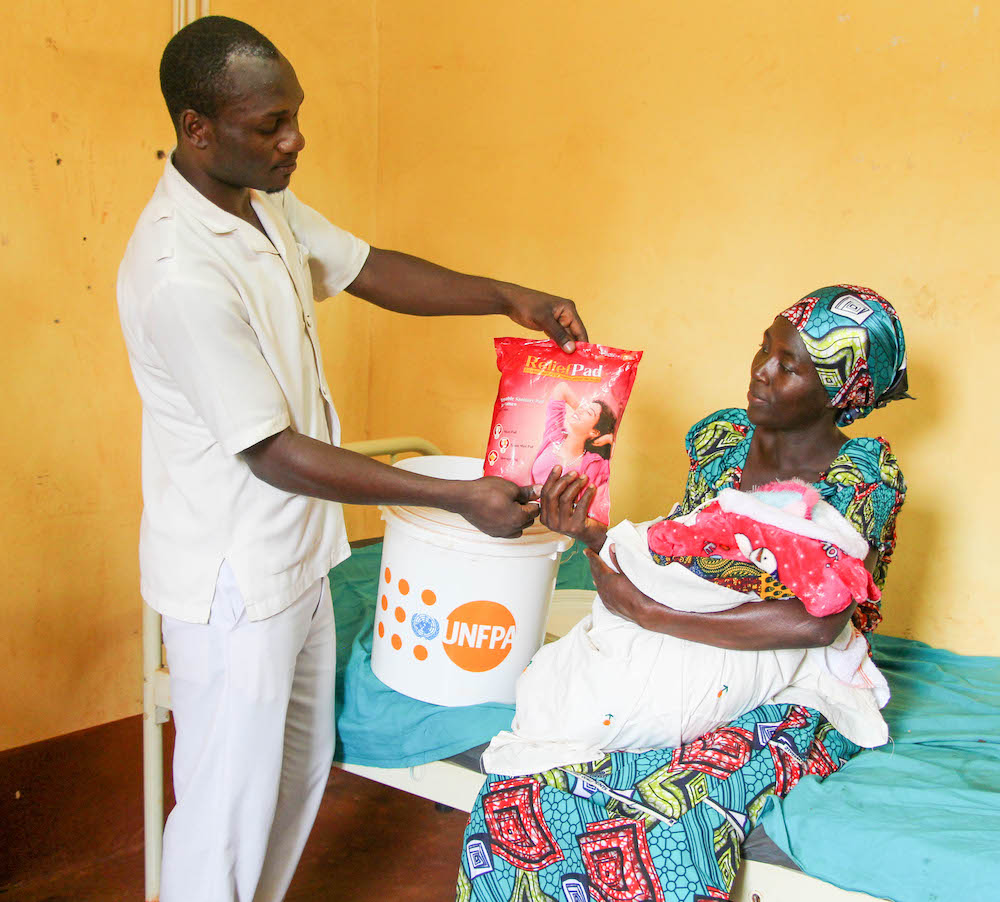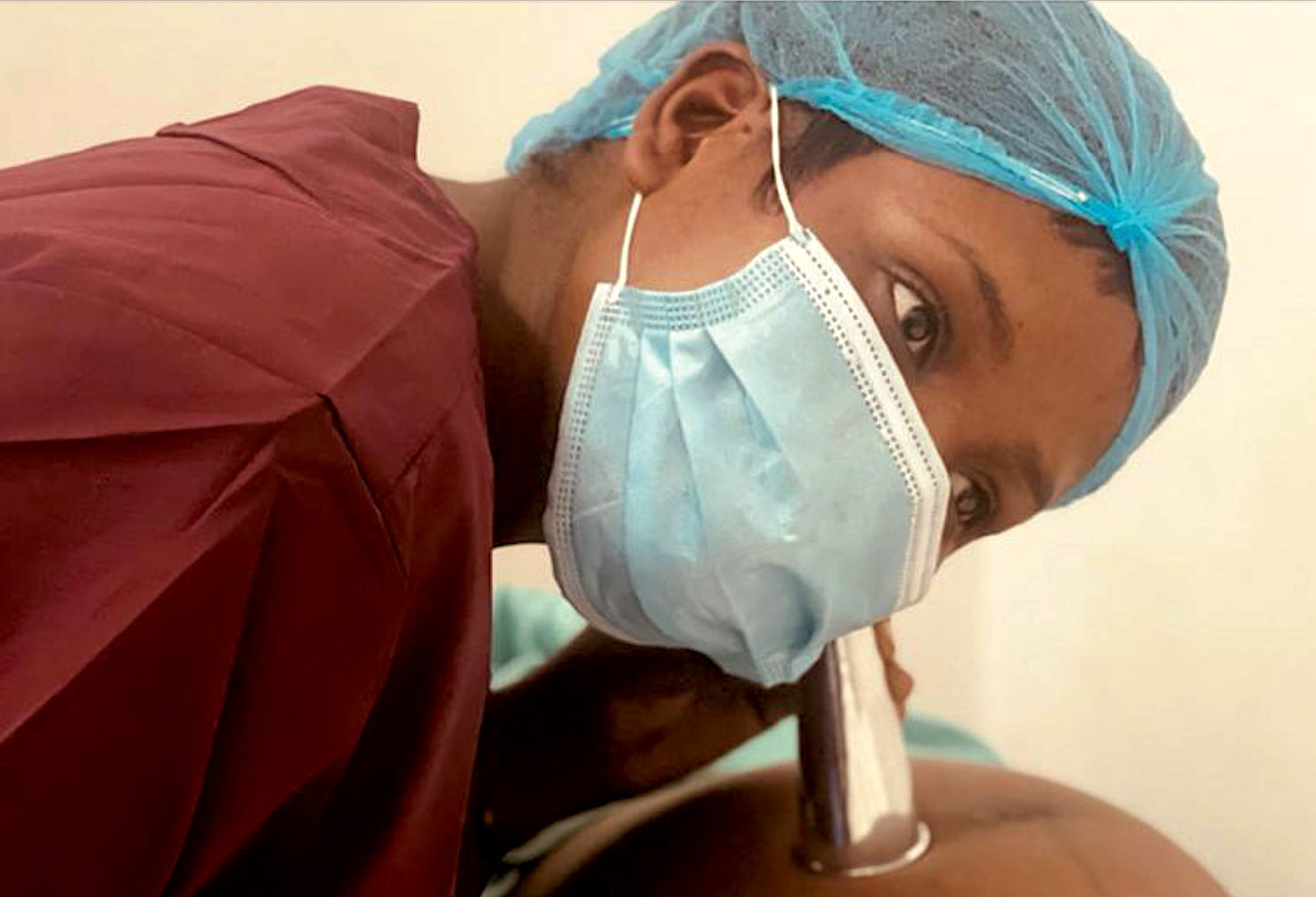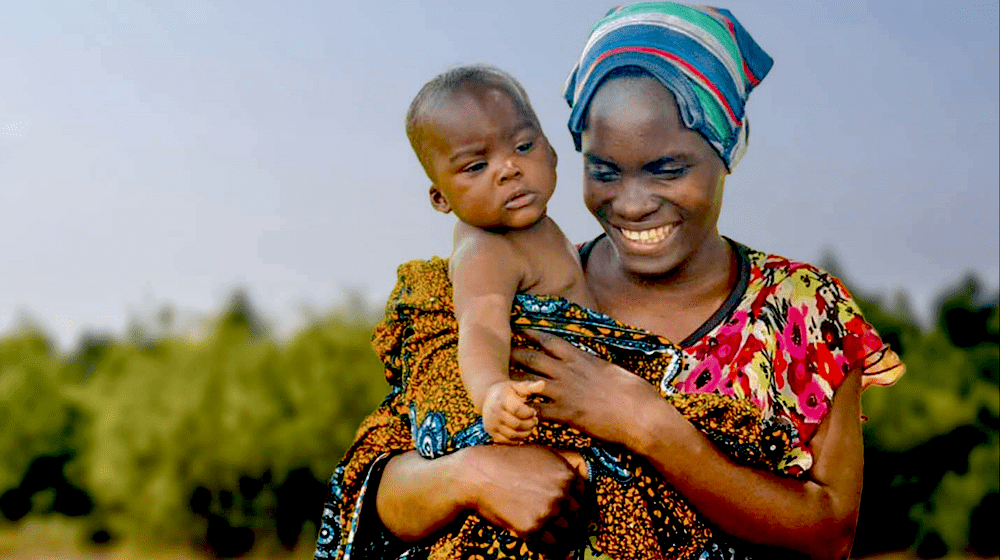NYARUGUSU REFUGEE CAMP, Kigoma, Tanzania—Last year, one of the world’s largest refugee camps quietly achieved a remarkable feat. Nyarugusu refugee camp hosts more than 130,000 refugees, almost three times its original capacity. Despite this, not one woman died while giving birth in the camp.
What makes this a notable success is that Tanzania has a relatively high maternal mortality ratio of 524 deaths per 100,000 live births (2017). This is much higher than the global average of 211 maternal deaths per 100,000 live births, and also the regional average for East and Southern Africa, of 391 per 100,000.
The camp’s zero maternal death rate bucked the trend.
How a woman at risk was kept safe
To understand the importance of this achievement, we considered the case of Faila Kashindi, 27, who has lived in the camp since her family fled the conflict in eastern Democratic Republic of the Congo when she was five years old.

While pregnant with her fourth child, Ms. Kashindi received regular visits from community health-care workers, who provided critical information to guide a healthy pregnancy.
She followed their recommendation for timely antenatal care visits. During one of these sessions she became concerned, as an ultrasound scan showed her baby was large.
“I was worried, but the doctors and nurses provided counselling, and then I relaxed,” Ms. Kashindi said. The ultrasound was reassuring: “I could see that my baby was okay.”
When it came time to give birth, she underwent a Caesarean section due to her baby’s large size. In attendance during the procedure was a skilled health-care worker trained in providing Comprehensive Emergency Obstetric and Newborn Care (CEmONC), and infection prevention and control.
All went according to plan. “The baby and I are healthy and doing well,” Ms. Kashindi said.
What’s behind Nyarugusu’s high success rate?
More than 99 per cent of deliveries in the refugee camp are conducted by skilled health-care workers, an exceptional rate made possible by high community awareness of the importance of receiving early medical assistance. Well sensitized, the camp’s inhabitants have developed appropriate medical-seeking behaviour.
It is also the result of the 15 skilled nurse midwives deployed to the camp with UNFPA support, the ongoing CEmONC training nurse-midwives receive to boost their capacities and the consistent stocking of maternal health supplies. All of these critical elements for a zero maternal death rate are supported by UNFPA and members of the Sexual and Reproductive Health Sub-Working Group for the refugee operation in North-western Tanzania.
A steady decline preceded the road to zero maternal deaths. In 2019, the camp recorded five maternal deaths, then four in 2020 and four in 2021, according to Health Information System data.
In the year 2022, the goal of zero maternal deaths was reached at the camp.
Achieving this transformative result can be explained through the eyes of Benedicta Kweslema, a nurse-midwife with 28 years as an enrolled nurse, who has attended to mothers and newborns during delivery in Nyarugusu’s main hospital maternity wing for the past two years.
The key to getting to zero

Ms. Kweslema and her colleagues improved their skills through two recent UNFPA-supported training sessions. The first, on CEmONC, covered emergency preparedness, obstetric emergency response, and essential new-born care. The second built capacity in infection prevention and control, including hand hygiene, prevention of surgical site infections and injection safety.
Their ability to care for mothers has been strengthened.
“This training expanded our technical skills and knowledge on monitoring of labour and early detection of danger signs to make deliveries safer,” she said. “I am better able to identify direct and indirect needs, and more effectively care for patients.”
As a direct result, Ms. Kweslema has built better relationships with mothers and the refugee community, increasing their health-seeking behaviour – a self-reinforcing cycle.
The training improved nurse-patient relationships and enhanced trust, leading to an increased number of women seeking health services.
“The training improved nurse-patient relationships, and enhanced trust from the refugee community, leading to an increased number of women seeking health services, and an increased number of safe deliveries at our health facilities.”
A strong team effort
UNFPA, sister UN agencies, local and international NGOs, and development partners support the Government of Tanzania in delivering quality comprehensive maternal health care. Funding for maternal health care is provided by the Government of Ireland, UN Central Emergency Response Fund (CERF), and UNFPA, with further funding to support Kigoma refugee camps provided by the Governments of Norway and Sweden, KOICA, and UN agencies.
In 2021, 47 health workers in Kigoma refugee camps (Nyarugusu, Nduta, and Mtendeli) received specialized UNFPA-supported training in monitoring labour, infection prevention control and focused antenatal care. This enhanced their knowledge and competence in the monitoring of labour and delivery using a partograph, and in provision of quality antenatal care.
For the timely interventions at Nyarugusu, Ms. Kashindi and her husband are grateful. “I thank the health-care workers, nurses and doctors for the high quality, thoughtful services they provided during labour and delivery, and for welcoming my baby into the world,” she said.


